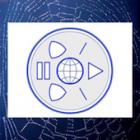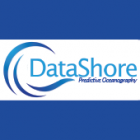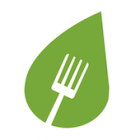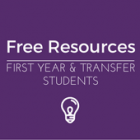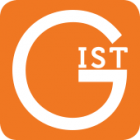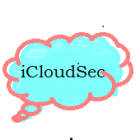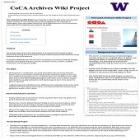
CoCA Archives Wiki Project
The Center on Contemporary Art (CoCA) Seattle Archives Wiki Project, upon culmination, will be a go-to page for those who are interested in learning more about CoCA. It will also give the Center a new way to reconnect with past artists and presenters, curators, and audiences, both general and within the arts community, “to tell the whole CoCA story”. Although the CoCA gallery is several contemporary art museums/galleries, this project will still be a great way to allow Seattle residents, visitors, and those who are located elsewhere to get a glimpse of another aspect of the history and spirit of the Seattle contemporary art scene.

